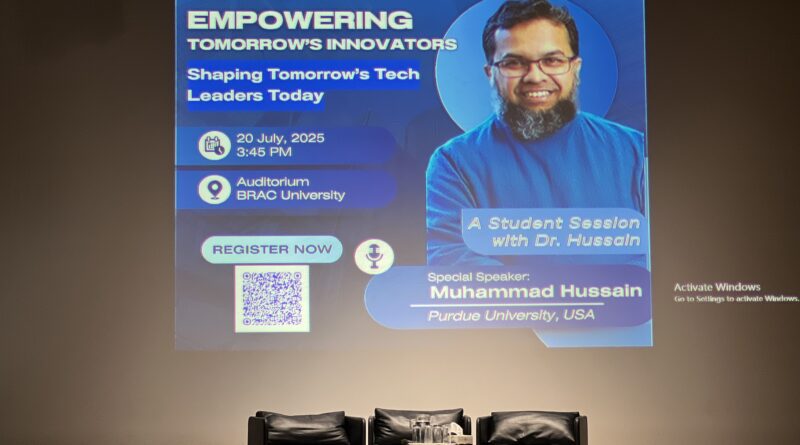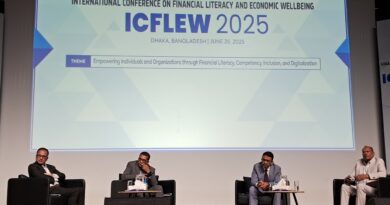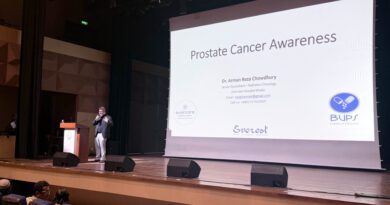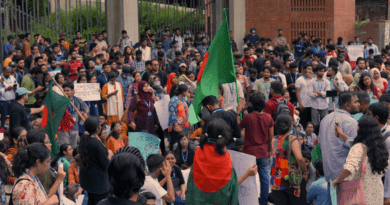Inside the minds powering the tech revolution of tomorrow
On July 20th, the Brac University auditorium welcomed nearly 100 attendees for an insightful seminar titled “Empowering Tomorrow’s Innovators, Shaping Tomorrow’s Tech Leaders”, organized by vlsi@bracu. Vlsi@bracu is a platform dedicated to research, workshops and seminars spanning from semiconductors to technologies revolving around the world of microchips. The event featured two distinguished Bangladeshi professors — Dr. Sayeef Salahuddin (Professor, University of California, Berkeley) and Dr. Muhammad Mustafa Hussain (Professor, Purdue University) — who shared insights of their work. Dr. Salahuddin focuses on negative energy and capacity while Dr. Husain focuses on flexible and reconfigurable electronics. They also shared visions for the future of technology. The session was enriched with unique insights of technology, their personal journey with it, their vision and intentions to work with our country’s students.
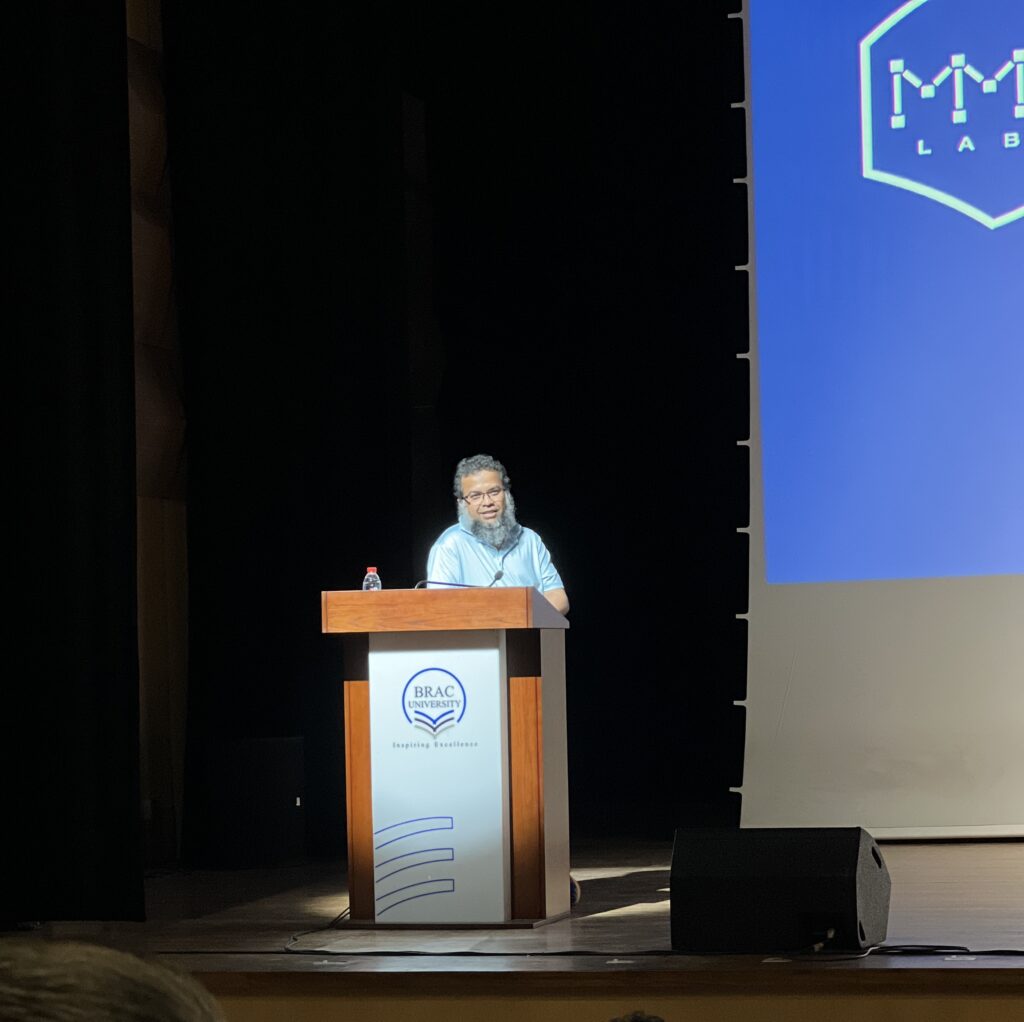
Picture Credit:Hasin Esrak
Dr. Salahuddin, a pioneer in his field, is best known for inventing the concept of “negative capacitance” — a fundamental breakthrough in solid-state devices that helped in developing energy-efficient semiconductors. “Every computing instruction comes with an energy cost,” he reminded, highlighting his lab’s work powering DRAMs in iPhones and ERAMs in AI systems like ChatGPT. A BUET graduate and now a key figure at Berkeley, Dr. Salahuddin emphasized the role of semiconductor research in Bangladesh’s tech future, warning, “We could be looking at a future like that of The Hunger Games because powerful people become even more powerful with access to AI.”
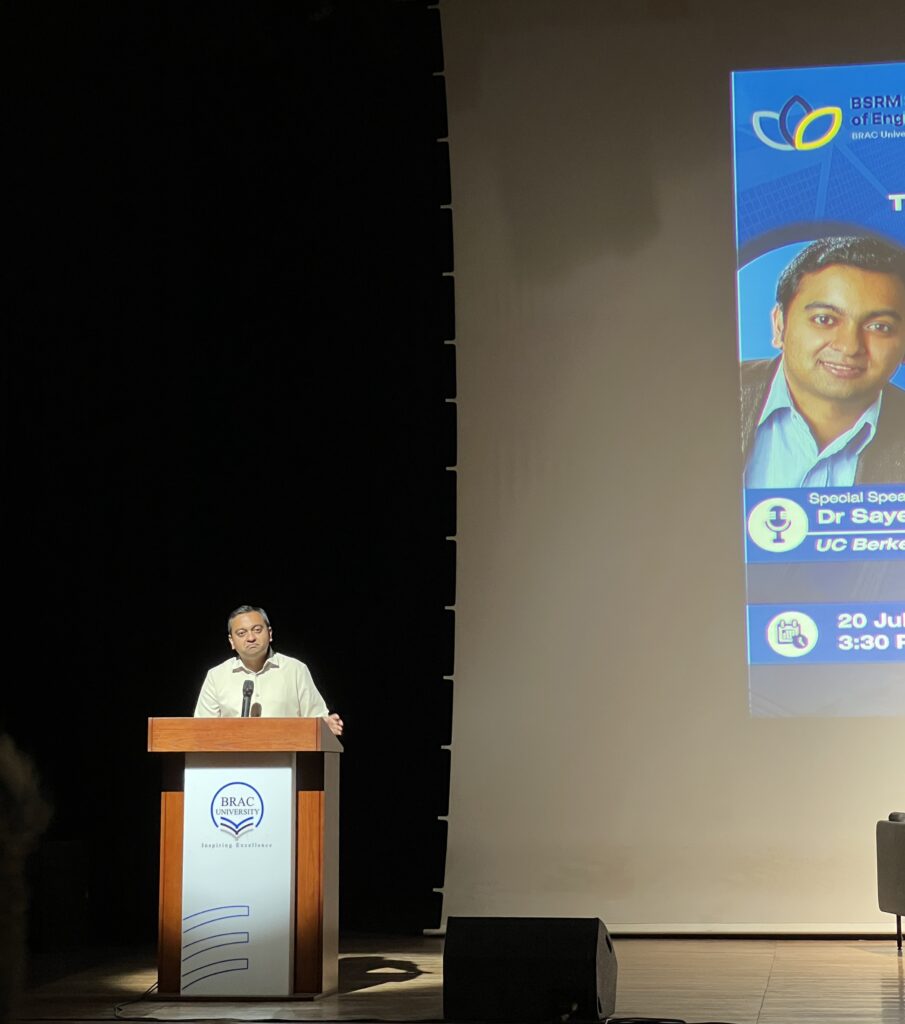
Picture Credit:Hasin Esrak
Dr. Hussain is a global leader in his field of study. From influencing Intel’s processor design to rebuilding international tech relations for the U.S. Department of Defense, his contributions bridge innovation and diplomacy. “You enter a scene and immediately understand what’s most needed — that’s efficiency,” he said, adding, “How quickly you deliver, that’s productivity.”
The event concluded with a lively discussion session that both students and faculty members took part in. During this, Dr. Salahuddin discussed the future of brainwave-based tech and confirmed the possibility of BracU students’ research collaboration with UC Berkeley, offering students a chance to be part of the innovation frontier.

